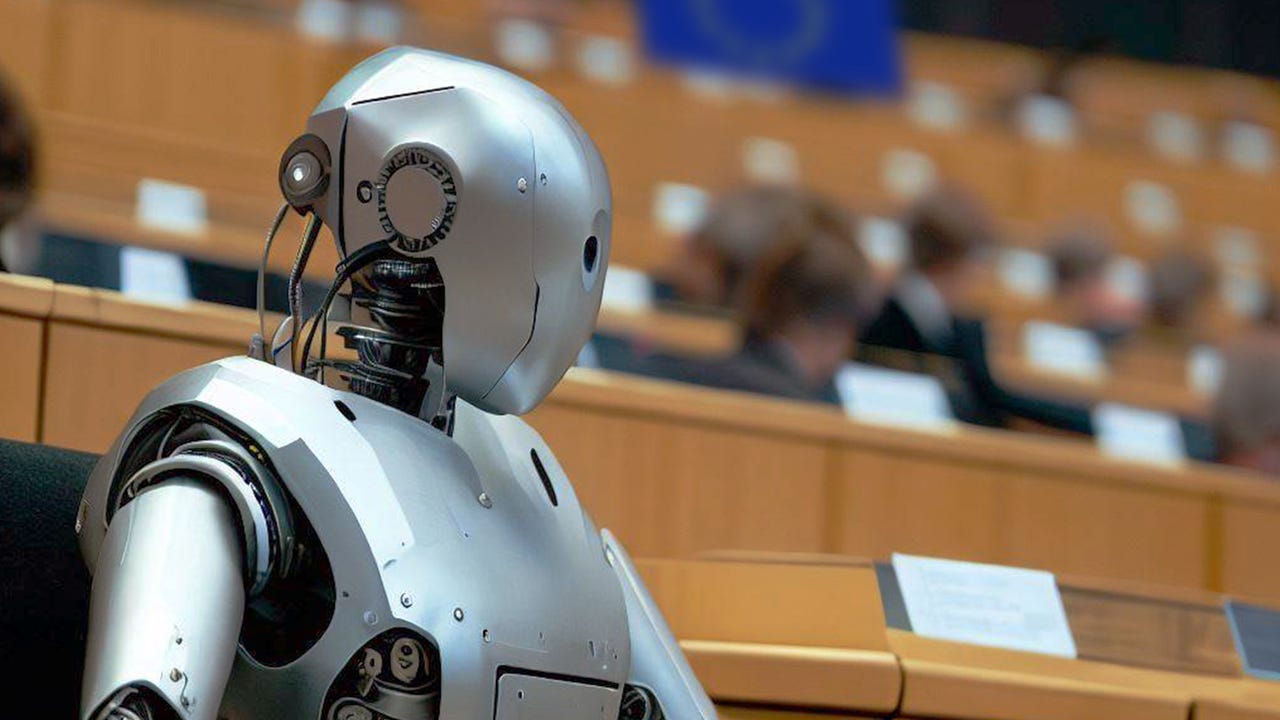EU moves ahead with draft law to regulate AI

AI-generated image created in Bing Image Creator with the prompt "a robot sitting in the European parliament".
The European Parliament on Wednesday passed the first draft of the AI Act, a proposed law that focuses on the safe development and application of artificially intelligent systems, to ensure AI tools respect international human rights laws.
The act, which has served as an example for other nations to develop their own AI regulations, restricts the use of technologies like facial recognition software and requires transparency from AI developers to share more data used to create their systems, like, for example, ChatGPT or Bing chat.
Also: ChatGPT's hallucination just got OpenAI sued. Here's what happened
The final version of the law is expected to be passed later this year after negotiations between the Parliament, European Commission, and Council of the EU are concluded.
For now, the draft includes provisions for generative AI systems like ChatGPT, Bing chat, or Google Bard, to prevent them from generating illegal, racist, or biased content.
Jonathan Boakes, Managing Director at Infinum in the UK, told ZDNET he believes the AI Act will play a vital role in ensuring responsible governance and protecting consumer rights and privacy while stimulating innovation.
"In fact, rather than stifling innovation, the Act should actually mean tech developers have to get more creative, rather than just jumping on the AI hype train and using it for the sake of it with little thought around what they want it to achieve", Boakes added.
Also: ChatGPT and the new AI are wreaking havoc on cybersecurity in exciting and frightening ways
As one of the first to create such a comprehensive draft of an AI law, the EU is solidly ahead of the US and other countries in taking control of AI regulation and policies.
"At the moment we have barely scratched the surface of AI's potential and its greatest possibilities. The AI Act serves as a necessary framework to harness AI's potential while prioritising consumer needs and creating a sustainable AI ecosystem" Boakes explained.
Worldwide, policymakers are striving for strong government regulation on AI development and use, including in the US. Just last week, three bipartisan bills were announced to ensure AI transparency, address its risks, and ensure the US maintains a leadership role in innovation.
Also: Microsoft commits to supporting customers on their responsible AI journeys
The US is also proposing rules for testing AI systems and protecting user data and privacy, and China is imposing strict censorship rules and control over AI technologies and data.
Whether these laws prove effective remains to be seen, as the fast-paced development of AI technologies, particularly generative AI, has been changing the industry constantly.
